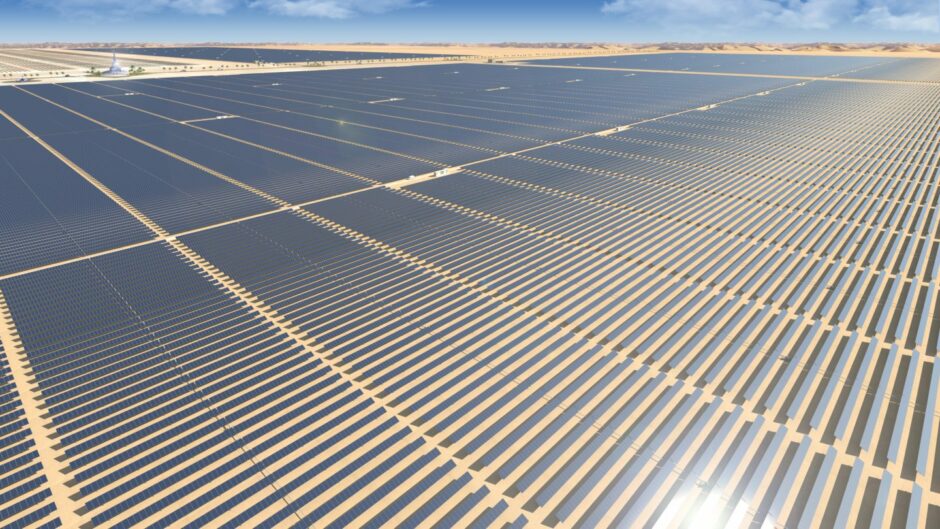
Our climate and energy future increasingly hinges on the ability of emerging economies to successfully transition to cleaner energy production.
Developing clean energy resources will help countries meet their own climate objectives, while building resilience to volatile prices, enhancing energy security, and helping to lower their overall energy costs, which is especially important in those countries most vulnerable to the climate crisis and struggling with access to affordable energy.
Commercially viable renewable energy will play a key role in helping developing countries to meet the demands of their economies, whilst making positive progress towards their climate objectives. While closing the energy-access gap of emerging economies is an immense challenge, it also represents a large opportunity for an ever more cost-competitive renewable energy sector.
For emerging and developing economies, meeting their energy development and net-zero climate goals will require trillions of dollars in renewable energy investment. This is significantly more than can be expected to be raised from public funds alone, meaning private and institutional capital has a critical role to play.
The key question for private sector developers, like Masdar, is how we can ensure developing countries are able to create the right environment to attract private and institutional capital and continue to grow as investment destinations.
Private-sector investments
Scaling up private-sector investment in developing countries is crucial to ensure the world’s most vulnerable regions have access to cost competitive affordable clean energy. As a recent report from the Intergovernmental Panel on Climate Change (IPCC) shows, while there is record interest in sustainable investing, financial flows have dropped below the levels required to limit global warming to below 2°C.
According to the International Energy Agency (IEA), annual clean energy investment in emerging and developing economies needs to increase by more than seven times – from less than $150 billion in 2020 to over $1 trillion by 2030 to put the world on track to reach net-zero emissions by 2050.
Today’s clean technology roadmap is vast – beyond the more established wind, solar and hydro technologies, the emergence and advancement of green hydrogen, battery storage, and carbon capture utilization and storage (CCUS), will be key to the ongoing energy transition. These require significant investment in order to become commercially viable.
Addressing the funding gap for both existing technologies (in the developing markets in particular) and more nascent technologies should be a key objective for the private sector.
Collaboration
While there is a lot of capital going into sustainability and green energy, it is not always going into the developing economies that need it the most. These are often destinations where it is especially hard to create a stable and reliable attractive investment environment, generate investment appetite, and attract private and institutional capital.
Collaboration is therefore key in bringing together key stakeholders from government (regulators, utilities etc), the development & investment community, and the financial institutions including both commercial banks and development finance institutions (DFIs), in order to create the right investment framework and environment, build credibility for the renewables programme and projects, and ultimately support the ability of companies like Masdar to deliver cost competitive renewable energy on a king term sustainable basis.
Clean energy projects, particularly in developing markets, require effective collaboration between international partners and it is increasingly important that these key stakeholders work together to make renewable energy projects in developing countries as successful as possible.
On this note, Masdar has developed strategic relationships with the international DFIs such as the International Finance Corporation (IFC), the European Bank for Reconstruction and Development (EBRD), and the Asian Development Bank and has successfully worked with them to successfully identify, initiate, develop and deliver ground-breaking renewable energy projects in a number of developing and emerging markets.
Partnering with the DFIs in this manner has assisted us and governments alike by creating reliable and stable investment frameworks, cutting red tape, simplifying tendering, helping to both fairly allocate and manage risk and facilitating access to cost competitive credit in developing economies.
Collaboration is also needed to drive more innovative financing solutions that support developers and financiers to increase their participation in emerging markets. At Masdar, for example, we have worked very closely with Etihad Credit Insurance (ECI), the UAE’s export credit agency, to develop solutions which support and facilitate the participation of commercial banks in the financing of renewable energy projects in developing markets.
Partnerships like these are critical to ensuring that we can attract additional capital to emerging markets thereby increasing the pools of available liquidity and enhancing cost competitiveness.
This continued focus on collaboration will only increase opportunities, as governments in developing markets continue to partner with DFIs and developers such as Masdar, to pursue ambitious renewable energy programs focused on enhancing energy security and delivering cost -competitive clean energy to their citizens.
Given the scale of today’s energy challenges, no single organization or industrial sector can tackle the clean energy challenge alone. We need close collaboration between government and industry, as well as along our entire value chain.
Government and industry must work as partners to make sure the business case of short- and long-term investments in industrial decarbonization is sound and sustainable.
Recommended for you

 © Supplied by Masdar
© Supplied by Masdar